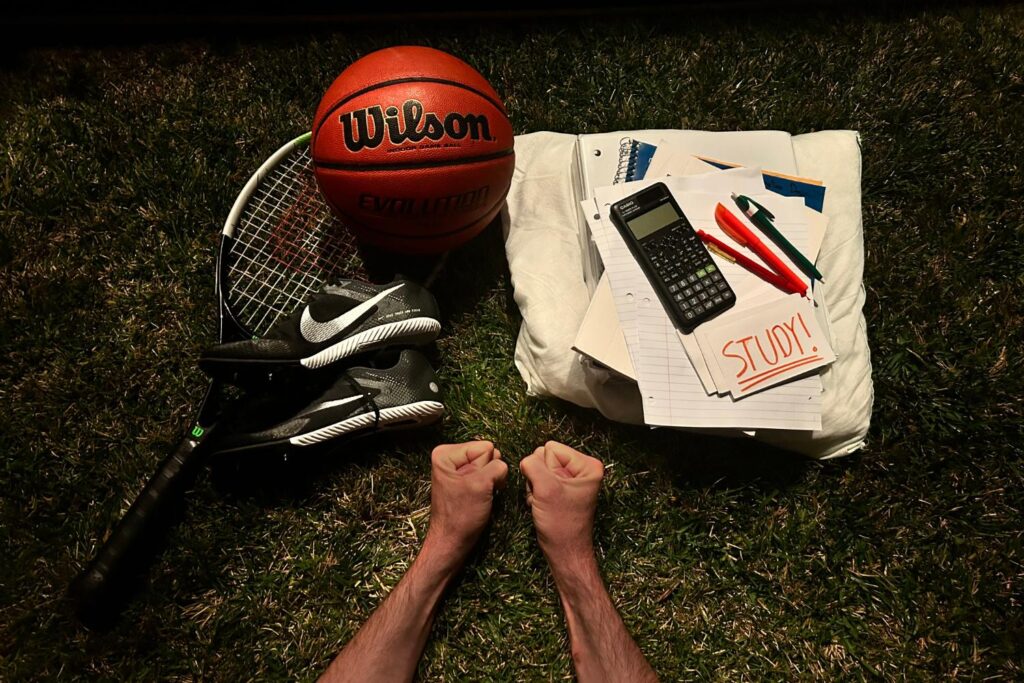As name, image, and likeness (NIL) opportunities increasingly reshape collegiate sports, universities face mounting pressure to balance athletic success with academic support for student athletes. Despite the newfound ability for athletes to profit from their personal brands, experts and advocates argue that educational institutions must reaffirm their commitment to academics, ensuring that athletes receive the necessary resources to succeed in the classroom. This article examines why, even in the era of NIL, universities have a critical responsibility to support the academic development of their student athletes.
Universities Face Increased Academic Responsibilities Amid Changing NIL Landscape
As student-athletes navigate the complexities of Name, Image, and Likeness (NIL) opportunities, institutions face a heightened duty to ensure academic integrity remains a priority. The influx of endorsement deals and financial opportunities introduces new distractions that universities must proactively address to prevent any erosion in academic standards. This calls for enhanced academic advising, tailored tutoring programs, and robust support systems that can accommodate athletes’ evolving schedules and commitments outside of the traditional classroom.
Key areas universities should focus on include:
- Implementing flexible course scheduling to balance athletic and NIL demands
- Expanding mentorship programs emphasizing time management and financial literacy
- Strengthening collaboration between athletic departments and academic advisors
| Support Area | Suggested Initiative |
|---|---|
| Academic Flexibility | Hybrid classes and online modules |
| Financial Literacy | Workshops on contract negotiation and budgeting |
| Mental Health | Access to counseling tailored to NIL-related pressures |
Balancing Athletic Commitments and Academic Success Requires Targeted Support Programs
Student athletes face an intricate juggling act, balancing grueling training schedules, travel demands, and intense competition alongside their academic responsibilities. As the introduction of Name, Image, and Likeness (NIL) rules creates fresh opportunities for income generation, the risks of academic neglect grow if not properly managed. Universities must recognize this evolving landscape and proactively implement targeted support initiatives that cater to the unique challenges these students encounter. Such programs can include tailored tutoring, flexible class scheduling, mental health counseling, and access to academic advisors who understand the pressures within collegiate sports.
Without deliberate investments in these resources, athletes risk falling behind in coursework or experiencing increased stress, which undermines their long-term success both on and off the field. Below is an outline of essential components that effective academic support programs should provide:
- Customized academic planning: Schedules designed around training and competition calendars
- Dedicated study centers: Quiet, equipped spaces with specialized tutors familiar with athlete needs
- Time management workshops: Techniques to help balance NIL obligations with coursework
- Regular academic monitoring: Alerts and interventions before issues become critical
| Support Element | Key Benefit |
|---|---|
| Flexible Scheduling | Reduces conflicts between classes and practice |
| Peer Mentorship | Offers guidance from experienced student athletes |
| Academic Alerts | Identifies early signs of struggle for timely help |
| Wellness Services | Supports mental health to sustain academic focus |
Collaborative Strategies for Academic Advising and Financial Literacy Education
To navigate the complex landscape shaped by NIL (Name, Image, and Likeness) policies, universities must enhance collaboration between academic advising and financial literacy education departments. Student-athletes face unprecedented financial opportunities alongside the demanding requirements of their sport and academics. A unified approach ensures the creation of tailored support systems that address time management, eligibility requirements, and responsible money handling. Key strategies include:
- Integrated advising sessions: Coordinated meetings involving academic counselors, financial experts, and compliance officers.
- Customized financial workshops: Practical lessons focused on budgeting, taxes, and contract negotiations specific to athlete contracts.
- Peer mentoring programs: Veteran student-athletes guiding newcomers through the dual challenge of athletics and financial independence.
These initiatives not only help student-athletes maintain eligibility and academic progress but also empower them to make informed decisions in new NIL marketplaces. By embedding financial literacy into academic advising frameworks, universities foster resilience and long-term stability for their athletes. The impact can be summarized in the following table:
| Benefit | Impact |
|---|---|
| Academic Performance | Improved retention and eligibility rates |
| Financial Management | Reduced debt and smarter investment decisions |
| Compliance | Lower risk of NCAA violations |
| Life Skills | Stronger independence post-college |
Ensuring Equity and Access Through Institutional Investment in Student Athlete Resources
As universities navigate the complexities of Name, Image, and Likeness (NIL) regulations, it is crucial that institutional investment prioritizes equitable access to academic and athletic resources. Without intentional funding strategies, disparities may grow between high-profile athletes and those in less visible sports or from underrepresented backgrounds. Schools must channel resources into comprehensive support structures such as tutoring, mental health services, and career counseling to ensure all student-athletes, regardless of sport or marketability, have the foundation needed to succeed both on the field and in the classroom.
Allocating targeted investments not only safeguards equity but also reinforces the long-term value of an athletic program. Effective resource allocation should include:
- Expanded Academic Support: Customized tutoring and study programs tailored to diverse learning needs.
- Holistic Well-being Services: Access to mental health professionals and stress management resources.
- Career and Financial Education: Workshops that prepare athletes for post-collegiate opportunities beyond NIL earnings.
| Resource | Current Availability | Recommended Investment |
|---|---|---|
| Academic Tutoring | Limited to high-demand sports | Expanded to all athletes |
| Mental Health Services | Basic counseling | Full-time dedicated staff |
| Career Development | Minimal programming | Regular workshops and mentorship |
The Way Forward
As the landscape of collegiate athletics continues to evolve under the new Name, Image, and Likeness (NIL) regulations, universities face mounting pressure to balance commercial opportunities with academic responsibility. Ensuring that student-athletes receive robust academic support is not merely a moral imperative but a critical investment in their long-term success beyond the playing field. Institutions must reaffirm their commitment to education, providing resources and guidance that help athletes navigate both their newfound financial opportunities and academic demands. Only through a comprehensive, student-centered approach can universities uphold the true spirit of collegiate sports and safeguard the futures of those who represent them.





